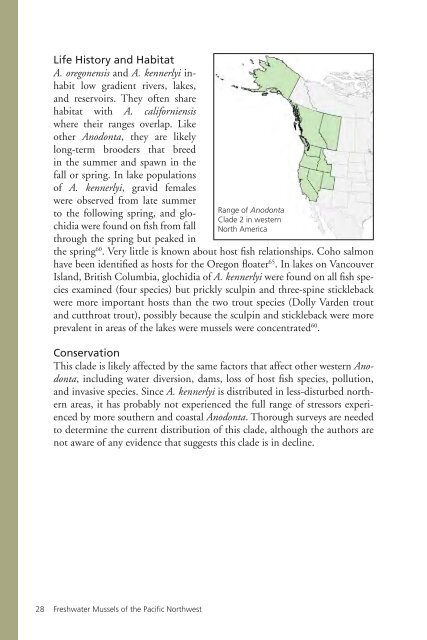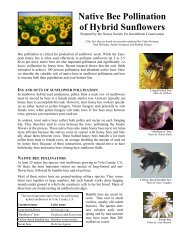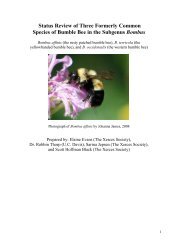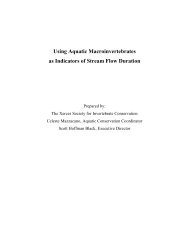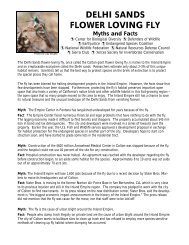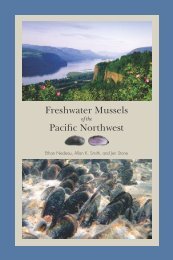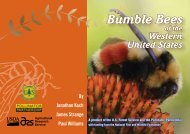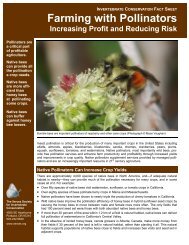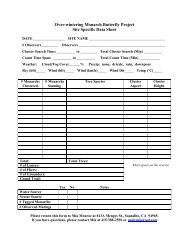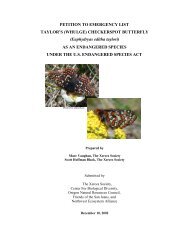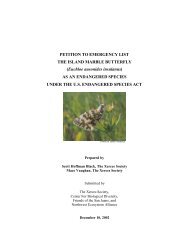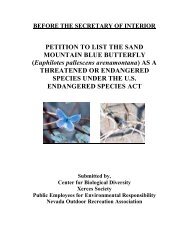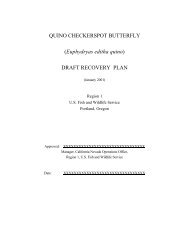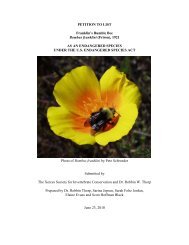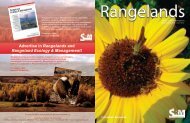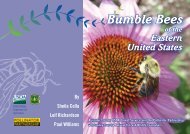Freshwater Mussels Pacific Northwest - The Xerces Society
Freshwater Mussels Pacific Northwest - The Xerces Society
Freshwater Mussels Pacific Northwest - The Xerces Society
Create successful ePaper yourself
Turn your PDF publications into a flip-book with our unique Google optimized e-Paper software.
28<br />
Life History and Habitat<br />
A. oregonensis and A. kennerlyi inhabit<br />
low gradient rivers, lakes,<br />
and reservoirs. <strong>The</strong>y often share<br />
habitat with A. californiensis<br />
where their ranges overlap. Like<br />
other Anodonta, they are likely<br />
long-term brooders that breed<br />
in the summer and spawn in the<br />
fall or spring. In lake populations<br />
of A. kennerlyi, gravid females<br />
were observed from late summer<br />
to the following spring, and glochidia<br />
were found on fish from fall<br />
through the spring but peaked in<br />
Range of Anodonta<br />
Clade 2 in western<br />
North America<br />
the spring 60 . Very little is known about host fish relationships. Coho salmon<br />
have been identified as hosts for the Oregon floater 65 . In lakes on Vancouver<br />
Island, British Columbia, glochidia of A. kennerlyi were found on all fish species<br />
examined (four species) but prickly sculpin and three-spine stickleback<br />
were more important hosts than the two trout species (Dolly Varden trout<br />
and cutthroat trout), possibly because the sculpin and stickleback were more<br />
prevalent in areas of the lakes were mussels were concentrated 60 .<br />
Conservation<br />
This clade is likely affected by the same factors that affect other western Anodonta,<br />
including water diversion, dams, loss of host fish species, pollution,<br />
and invasive species. Since A. kennerlyi is distributed in less-disturbed northern<br />
areas, it has probably not experienced the full range of stressors experienced<br />
by more southern and coastal Anodonta. Thorough surveys are needed<br />
to determine the current distribution of this clade, although the authors are<br />
not aware of any evidence that suggests this clade is in decline.<br />
<strong>Freshwater</strong> <strong>Mussels</strong> of the <strong>Pacific</strong> <strong>Northwest</strong>


